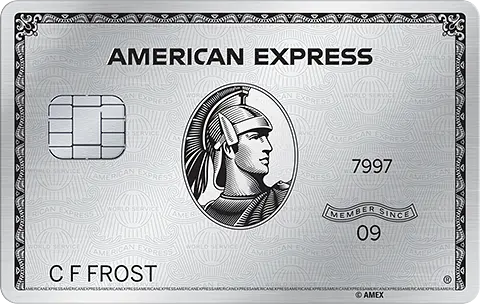✨ TRENDING TRAVEL NEWS ✨
• Join Us: Want to learn more about your Daily Drop Pro Limited account and how to land more travel deals? We have an onboarding session today. Join here.
• You Decide: Is lounge access still worth it in 2025?
• Interesting: AI could change airline pricing — here’s what you should know.
• Travel Tool: Confused about all of the miles and points lingo? Check out our encyclopedia!

☕️ Good morning and welcome back to Daily Drop — your daily reminder that packing cubes are just emotional support bags for other bags.
Here’s your emotional travel support for the day:

🤓 Travel Trivia Tuesday
Which of these countries has no permanent rivers? |
You’ll find the answer at the bottom of the newsletter. 👇

✈️ Should you book in a portal or direct?
Booking travel can feel like standing at a fork in the road.
One path: Go straight to the airline or hotel, lock it in, and bask in the warm glow of direct booking perks.
The other: Book through your card’s travel portal — the secret door where points, cash, and even annual credits all work in your favor.
So… which way is better?
Why portals can be magic
Here’s the biggest win. Enter: freedom from “award availability.”
If there’s a seat or room for sale with cash, odds are you can grab it with points through a portal. That’s huge if you’re heading somewhere your usual hotel chain — like Marriott, Hyatt, IHG, or Hilton — barely exists… or doesn’t exist at all.
Portals also let you:
Mix cash and points so you don’t have to drain your entire stash in one go.
Use annual travel credits from premium cards (like the Chase Sapphire Reserve® or American Express Platinum Card®).
Tap into premium hotel collections that come with free breakfast, late checkout, and upgrade potential
Book flights that often earn airline miles and elite credits, just like a regular paid ticket.
Sometimes you’ll even see portal prices that are better than booking direct — a reminder that the “middleman” occasionally hooks you up.
Why booking direct still has its moment
Portals aren’t perfect…
When it comes to hotels, booking through a portal usually means:
No hotel rewards points.
No elite-night credits.
No automatic perks like upgrades or free breakfast — unless you’re in that premium hotel collection lane.
There’s also the customer service layer. If something goes wrong — like your flight gets canceled at midnight — you’ll be calling the portal’s help line instead of going straight to the airline desk.
That’s fine for minor hiccups… not so great for major chaos.
And while portals offer plenty of inventory, they typically won’t show member-only rates or flash sales you’d find by booking direct.
The smarter play
For flights, portals can be a killer move — you’ll earn miles, pick any seat for sale, and use cash, points, or both.
For hotels, booking direct is usually the MVP if you value earning points and elite perks. But if your chain options are slim, or if a portal’s premium collection is offering serious extras, it’s worth a look.
Bottom line? Don’t be loyal to one method. Compare both every time.
Sometimes the “middleman” is exactly who you want in your corner… and sometimes you want to cut them out entirely.

🏨 Hilton points are half off right now (and that’s a big deal)
Hilton is running a promo through September 25 that gives you a 100% bonus on purchased points. In plain English: you’re buying points for half a cent each.
If you’re just shy of a redemption, this is the perfect time to top up your balance. But it can also unlock some big wins when you combine it with Hilton’s 5th-night free perk (for members booking with points).
Let’s run the numbers.
💎 Costa Rica, but make it luxury
Hilton’s new SLH properties in Costa Rica — like Senda Monteverde Hotel and Tabacon Thermal Resort & Spa — regularly go for $500+ per night. A five-night stay here would cost you about $2,600 in cash.
But each night is bookable for 80,000 Hilton points. Thanks to the 5th-night free perk, you’d only need to buy 320,000 points for the stay.

Screenshot from hilton.com
With this promo, you can literally buy those 320,000 points for $1,600 — saving you $1,000+ on a high-end, bucket-list trip.
🏨 Tallinn on a budget
This trick isn’t just for $500-per-night hotels. Take the Hampton by Hilton Tallinn in Estonia — just 25,000 points per night.

Screenshot from hilton.com
Five nights would cost 100,000 points (with the 5th-night free), which you can buy for $500 during the promo. That’s about $30/night less than the cash rate — a clean $150 in savings just for booking smart.
Important fine print:
Buying points doesn’t code as travel, so you won’t get a category bonus on most cards. If you’re buying, use a card like the Capital One Venture Rewards Credit Card to earn 2x miles
The offer ends September 25 — after that, it’s back to full price when buying points.

PRESENTED BY SURFSHARK
🌎 Unlock the world (and protect your data in the process)
If you’re gearing up for your next getaway abroad, Surfshark makes every online journey smoother — and safer!
Surfshark is our favorite VPN (Virtual Private Network), and one that I’ve personally used for years. 🙌

Image by Surfshark VPN®
With 3,200+ servers across 100 countries, Surfshark allows you to:
✈️ Switch your virtual location in seconds to grab cheaper flight and hotel deals
📺 Keep streaming your favorite shows abroad
❎ Bypass frustrating geo-blocks on popular websites — no matter where you are in the world
With Surfshark activated, gone are the days of using risky café or airport Wi-Fi. Plus, you’ll have unlimited simultaneous device connections, so the whole family can browse with peace of mind.
Ready to travel the world — virtually and securely? Go to surfshark.com/dailydrop or use code DAILYDROP at checkout to get four extra months of Surfshark VPN!

Alright, now for the trivia reveal you’ve been waiting for… the answer is none other than Saudi Arabia!
Saudi has no permanent rivers — along with a few other desert nations. Instead, its landscape is dotted with wadis: dry riverbeds that only flow briefly after rainfall.

Photo by Felix Friebe
So, how does the kingdom stay hydrated?
Desalination rules the day — Around 50% of drinking water comes from seawater turned fresh, a lifeline for coastal and inland cities alike.
Aquifers run deep — Another 40% of water comes from ancient, often non-renewable underground aquifers.
The remaining 10% comes from the scarce surface water found in mountainous or oasis regions.
And it’s not just Saudi Arabia — places like Libya, Qatar, and even Malta also share the “no rivers” status, though their climates and water strategies differ.

That’s all for today, my friends! I hope you enjoyed today’s newsletter and even learned a little something in the process.
Take care and see you tomorrow. ❤️
With contributions by Tiffany Eastham, McKay Moffitt, and Benji Stawski














